Learning tours prove popular with primary, secondary school pupils
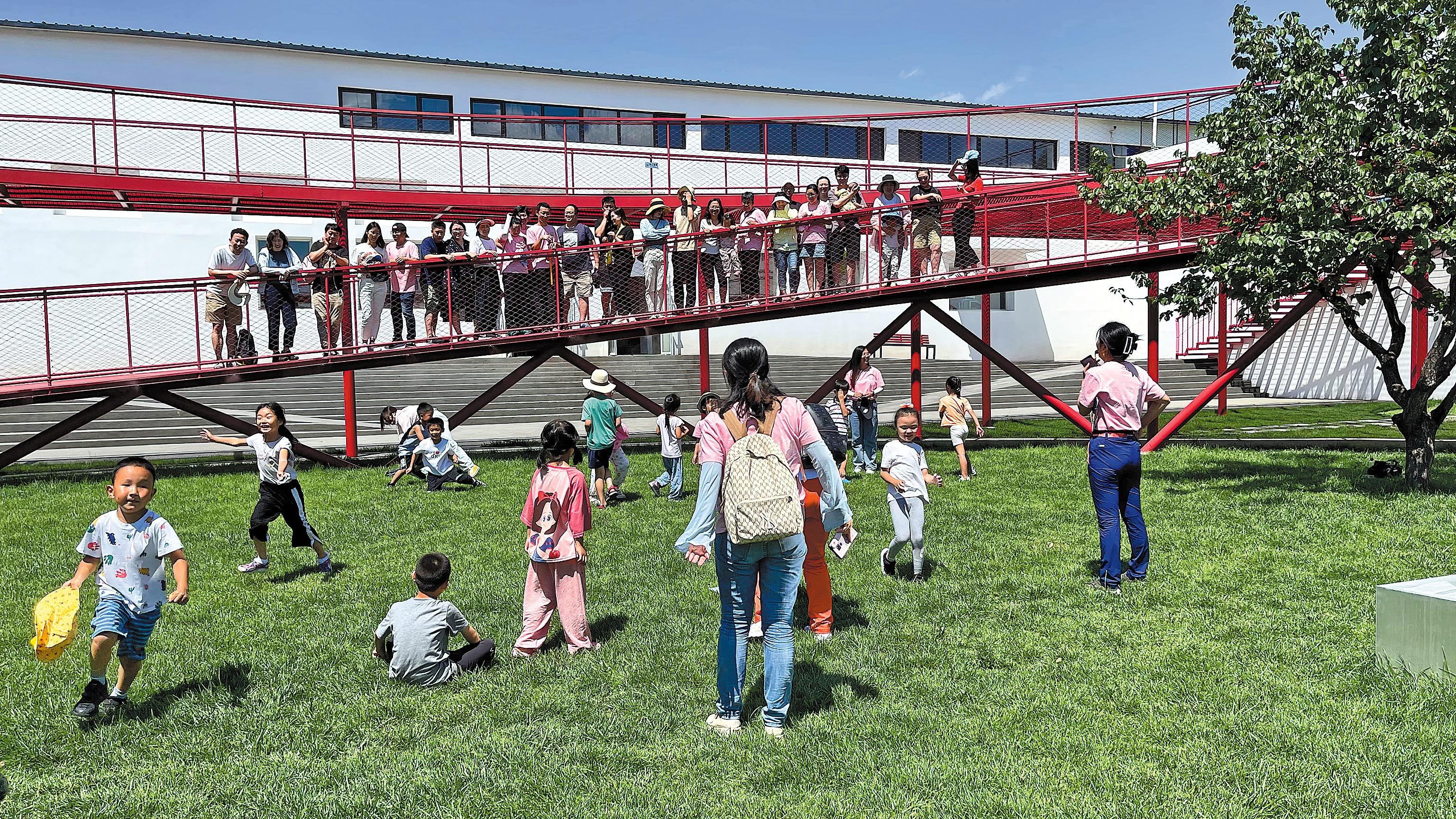 Families stay at a resort in Beijing's suburban Miyun district, which integrates scientific exploration with natural and arts education in a rural setting. (PHOTO PROVIDED TO CHINA DAILY)
Families stay at a resort in Beijing's suburban Miyun district, which integrates scientific exploration with natural and arts education in a rural setting. (PHOTO PROVIDED TO CHINA DAILY)
Zhang Wanling recently learned a lot more about bridges.
The primary school student from Anshun, Guizhou province, toured the Balinghe Bridge in the city's Guanling Bouyei and Miao autonomous county. She saw various sections of this massive steel structure and learned how physics, chemistry and geology play roles in allowing suspension bridges to be built in mountainous areas.
It’s like moving training from the classroom to the grand auditorium of nature — enabling students to commune with rural culture.
Wang Xingyu, founder of Beyond the City, a Shanghai company that arranges for students to experience rural life
"By studying the Balinghe Bridge, I learned about the differences among beam, arch, cable-stayed and suspension bridges," Zhang said. "The engineers responsible for such constructions are truly remarkable."
With its deck standing at a height of 370 meters, the Balinghe Bridge is one of the tallest nationwide. Visitors strolling among the clouds along a sightseeing pathway on the bridge appreciate the mountain valley scenery and the convergence of nature and modern technology.
Policy incentives, diverse experiences and improved services are fueling such student learning trips.
A recent report from the China Tourism Academy showed that a rising number of tours offer learning experiences for students.
More than 6 million people embarked on study tours last year, more than the pre-pandemic total of 4.8 million in 2019, data from the National People's Congress' Education, Science, Culture and Public Health Committee show.
Reservations for such trips more than doubled for the May Day holiday, domestic online travel agency Trip.com Group reported, and as summer approaches, inquiries about such tours continue to grow.
Wu Ning, an official at the bridge science museum situated next to the Balinghe Bridge, said, "We have developed study programs for children of different ages, from elementary to middle and high schools."
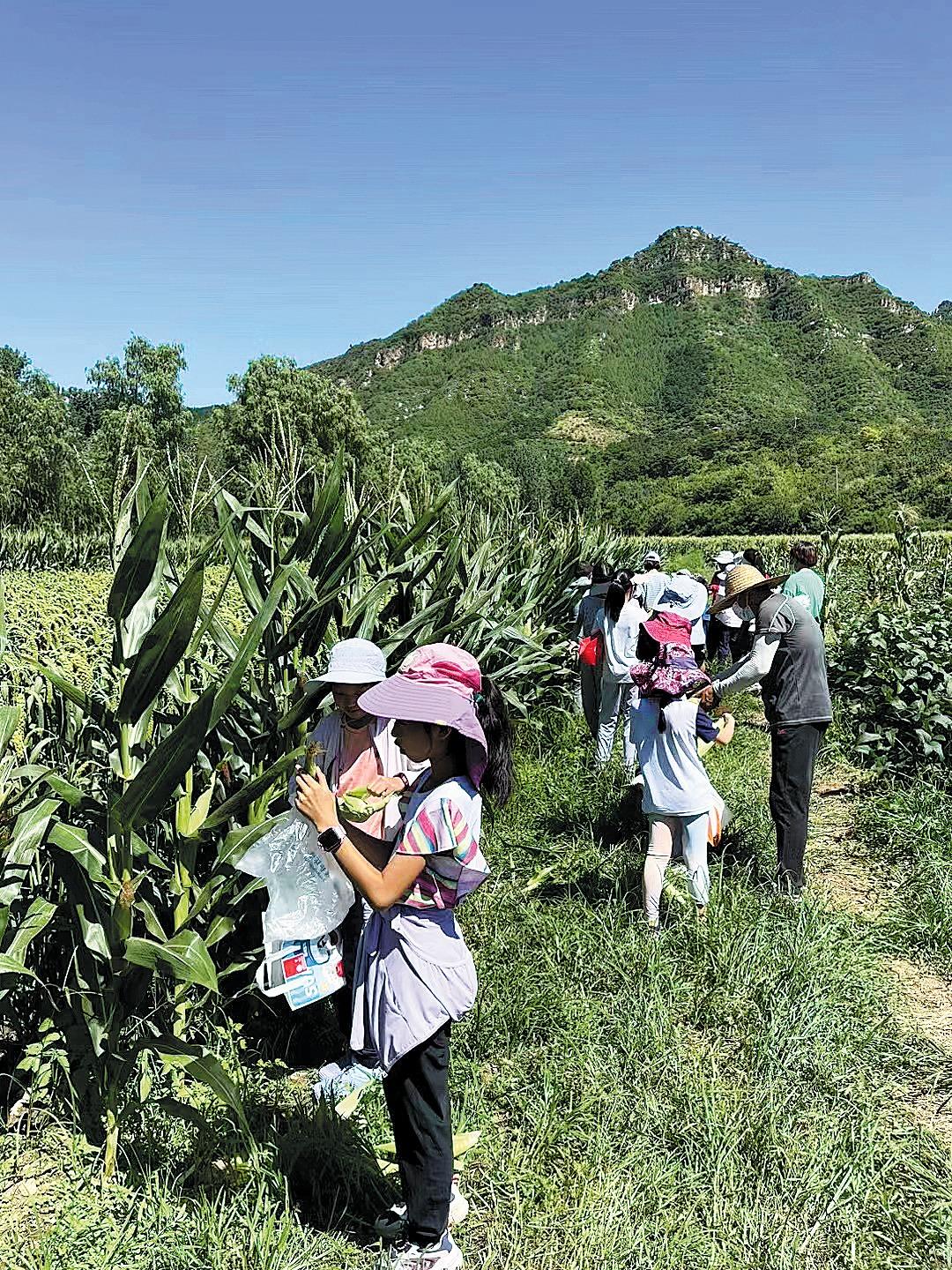 Families take study tours in suburban Beijing. (PHOTO PROVIDED TO CHINA DAILY)
Families take study tours in suburban Beijing. (PHOTO PROVIDED TO CHINA DAILY)
The museum showcases the history, technical innovation and craftsmanship of the numerous bridges in the province. It also displays model bridges and the components required for building bridges.
Wu said the Balinghe Bridge study tour helps students improve their understanding of bridge construction, while stimulating their imaginations and creativity.
Since last year, the museum has been visited by more than 600 schools for educational activities. On campuses with a total of some 50,000 teachers and students, it has also introduced over 100 activities themed on the science involved in building bridges.
"We've received very positive reviews from our visitors," Wu said.
The bridge is among the growing number of educational tourism hot spots across the country.
In Shanghai, Wang Xingyu has seen his business, which integrates education with rural experiences, surge this year.
"The pandemic is over and everyone wants to get out to commune with nature again," Wang said.
In 2017, he started Beyond the City, a company that arranges for middle and high school students to experience rural life.
Discussing the reasons for starting his business, Wang said, "I found that each village has its own distinctive culture and history, which can complement the knowledge imparted to students in the classroom.
"It's like moving training from the classroom to the grand auditorium of nature — enabling students to commune with rural culture."
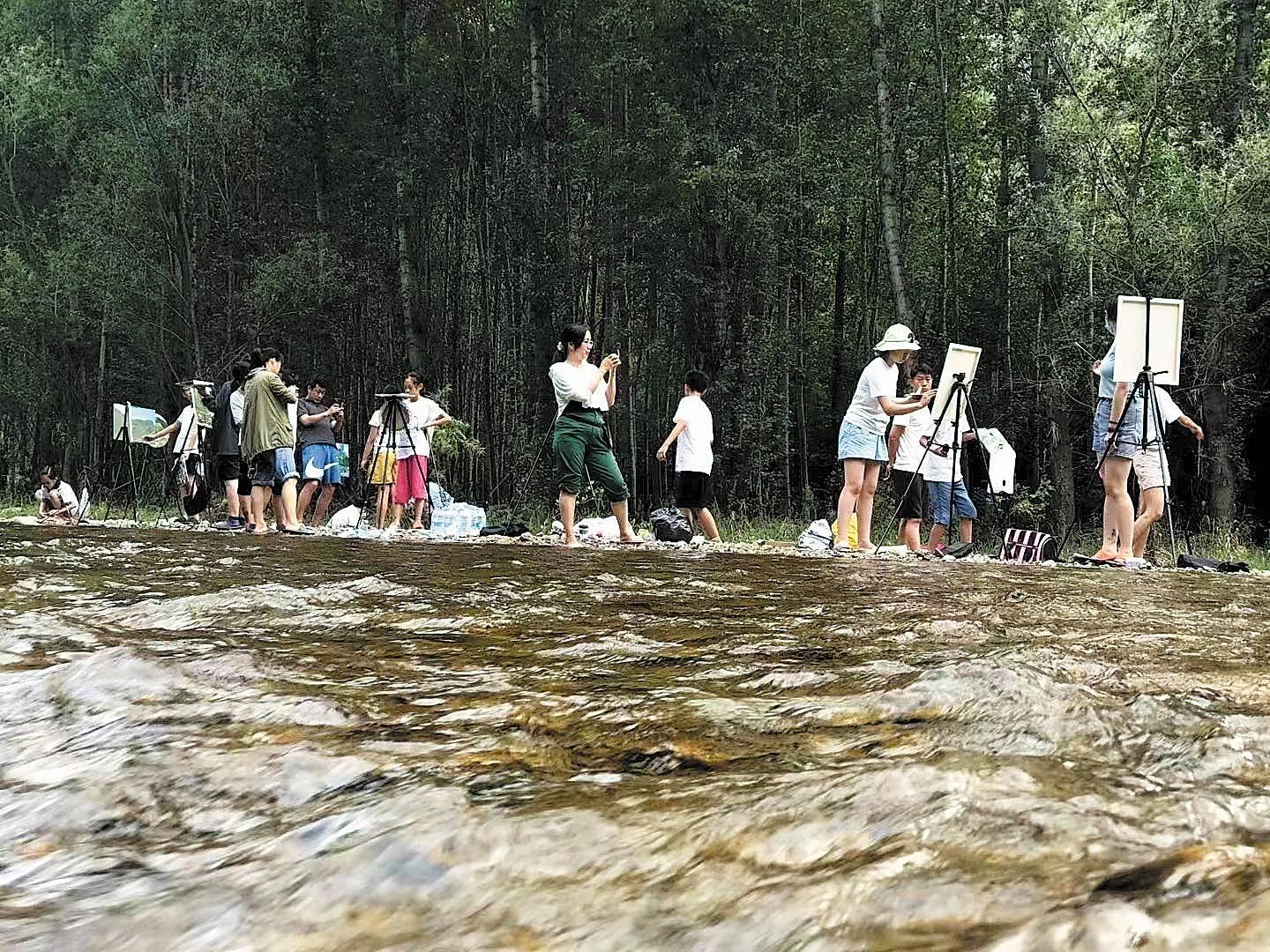 Families take study tours in suburban Beijing. (PHOTO PROVIDED TO CHINA DAILY)
Families take study tours in suburban Beijing. (PHOTO PROVIDED TO CHINA DAILY)
Popular destinations
Wang has arranged for 20,000 students from major cities to study literature, social research, opera and architectural design during their stay in villagers' homes. The cities include Beijing, Shanghai, Shenzhen and Guangzhou, Guangdong province, Chengdu, Sichuan province, and Hangzhou, Zhejiang province.
Ganzi Tibetan autonomous prefecture in Sichuan and the terraced farmlands of Yunnan province are among the most popular destinations for students.
In Heze, Shandong province, students enjoy interacting with traditional rural arts troupes, while in Aoluguya, Inner Mongolia autonomous region, they meet members of the ethnic Ewenki community, Wang said.
Farming work is also arranged for students to better appreciate the value of labor. Each program, which typically lasts five to seven days, aims to enrich students' overall knowledge.
Wang attributes the success of his business to the introduction of the "double reduction" policy by the central authorities in 2021, which aims to reduce the burden of excessive homework and tuition on young students.
"This focus on quality education will boost learning outside the classroom," he said, adding that improved village environments as a result of the nation's rural vitalization policy are also crucial for meeting the requirements of learning tours.
"We've already contacted many international and private schools, and an increasing number of public schools have approached us," Wang said.
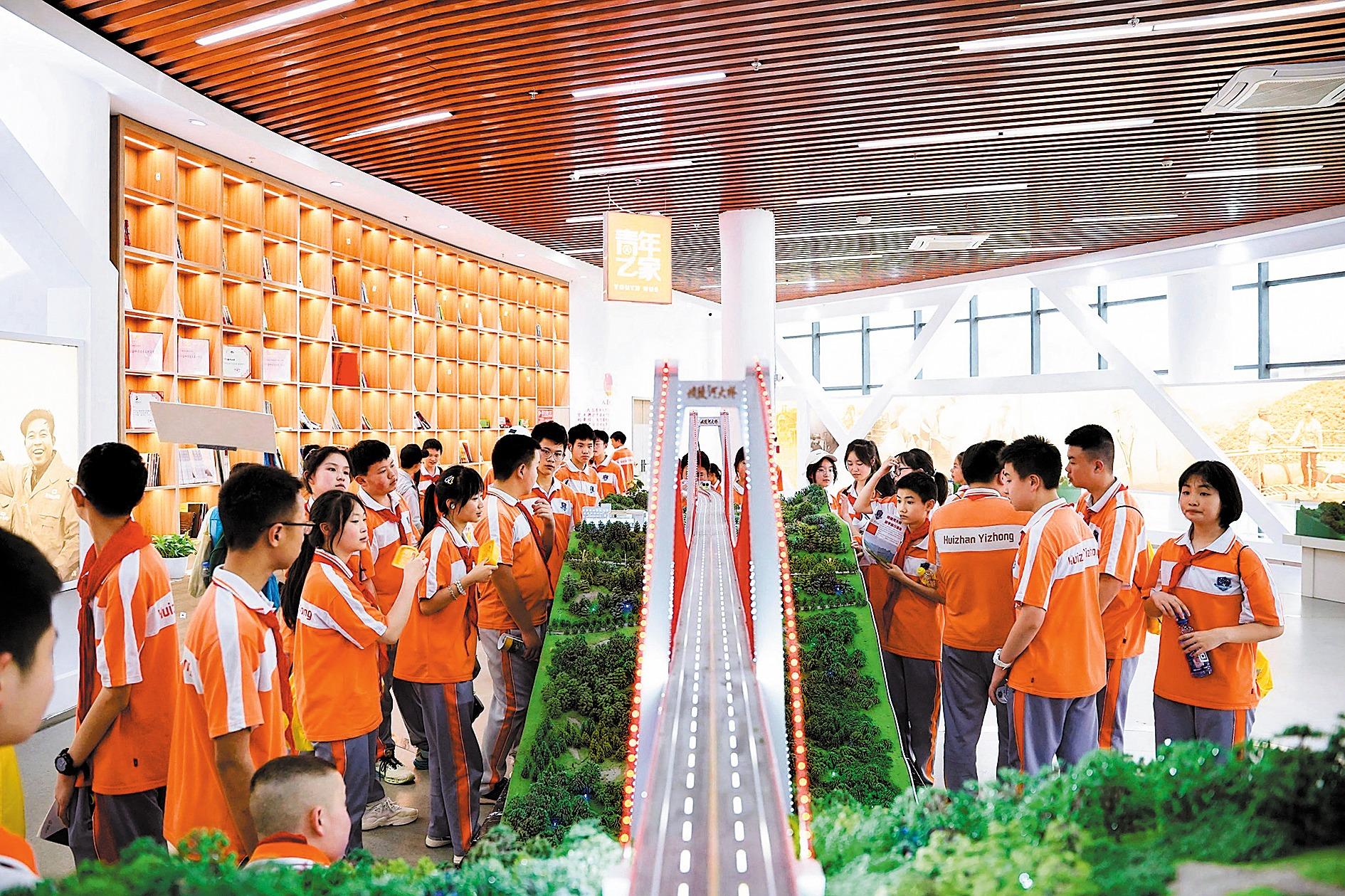 Students visit the bridge science museum next to the Balinghe Bridge in Anshun, Guizhou province. (PHOTO PROVIDED TO CHINA DAILY)
Students visit the bridge science museum next to the Balinghe Bridge in Anshun, Guizhou province. (PHOTO PROVIDED TO CHINA DAILY)
Fully booked
Li Junman, who has run the Hi Ma Ma resort in Beizhuang village, Miyun district, northeastern Beijing, since 2021, said, "Our summer camps this year are already fully booked."
The resort, situated on the site of a former textile factory, provides happy educational experiences for children and their parents during their stay.
"We mainly target primary and secondary school students, who have shown an increasing need for immersive programs, rather than sightseeing and travel," Li said.
The resort, which integrates scientific exploration with natural and arts education in a rural setting, offers modern accommodations and catering services.
Li, whose business was not affected by the COVID-19 pandemic, said, "Over the past few years, schools and families have sought to enrich children's learning experiences outside the classroom, especially during weekends and major holidays.
"When cross-provincial travel was not advised, we received many students from Beijing."
With COVID controls lifted, Li has started to receive students from neighboring Hebei province.
To complement the school curriculum, he and his team have also diversified their programs, including those combining science and farming, as well as laboratory operations.
Li said he has been approached by many primary and middle schools in Beijing, and cooperation agreements have been signed for students to attend extracurricular programs at the resort.
Wang Yao, director of the social sciences division at Nanning Academy of Social Sciences in Guangxi Zhuang autonomous region, said policy incentives have been the main contributor to the success of learning tours.
Earlier this year, the Ministry of Education and 12 other government departments issued a guideline to improve a cooperative mechanism comprising schools, families and communities to nurture the development of morality, intelligence, sports, art and a hardworking spirit among students.
Schools are also encouraged to make good use of resources, communicate with educational centers, organize field trips to teach students social responsibility and practical skills, and instill an innovative spirit, the guideline states.
It also requires communities to hold extracurricular activities for primary and secondary school students, and for museums, educational and cultural centers, sports, parks and arts venues to be open to primary school and preschool pupils for free, or at a discount.
Wang Yao said the "double reduction" policy has reduced the burden of homework and off-campus tuition on students taking compulsory education.
The policy also requires schools to design courses and homework more scientifically and reasonably to meet the comprehensive development needs of primary and secondary school students.
The main responsibility of family education has been standardized in the form of law. In promoting school-family and social collaboration, the focus of education has widened from textbook learning to embrace high moral standards, physical fitness, life skills, cultural cultivation, and behavioral habits.
"As a result, the popularity of off-campus study trips has increased significantly in the past two years," Wang Yao said.
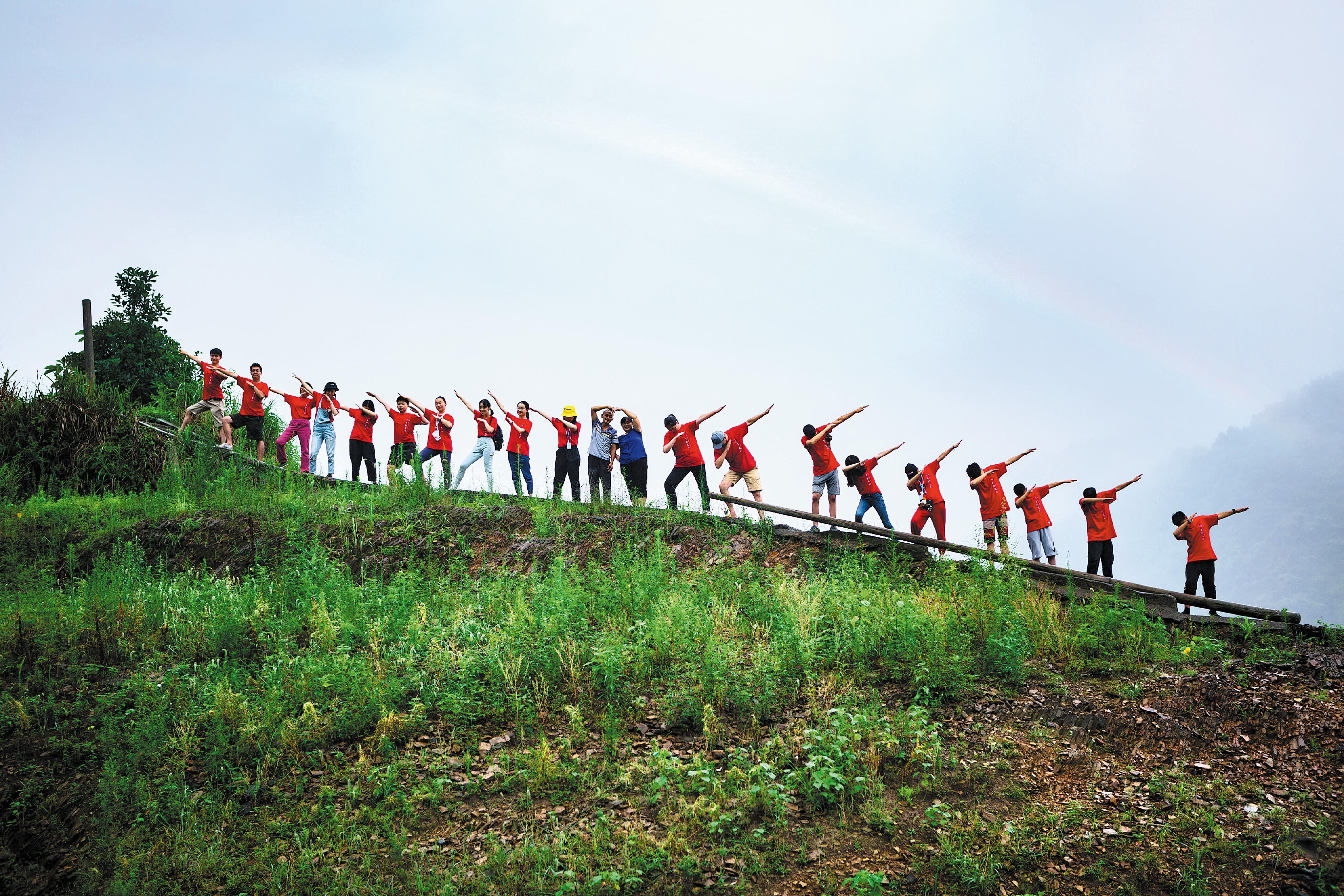 Students from major cities across China pose for a photograph during a study tour in Huaihua, Hunan province, on which they took courses and experienced rural life. (PHOTO PROVIDED TO CHINA DAILY)
Students from major cities across China pose for a photograph during a study tour in Huaihua, Hunan province, on which they took courses and experienced rural life. (PHOTO PROVIDED TO CHINA DAILY)
Guideline issued
In 2016, the Ministry of Education and 10 related departments issued a guideline for promoting study trips for primary and secondary schools. The guideline states that such trips are aimed at improving educational quality through experiential learning and study based on research, mainly for such students.
In the following years, many regions started to introduce their own policies to boost the study tourism market.
Guangdong, Yunnan, Henan and Hainan provinces, along with Beijing, have proposed arranging study practices for primary and secondary school students.
In the first four months of this year, thousands of study tours took place nationwide, including those in Huangshan, Anhui province, and Mianyang, Sichuan.
More than 600 primary and secondary school research and practice education bases were chosen by the Ministry of Education from 2016-2020, and over 6,300 research and practice courses and 7,300 high-quality routes were developed.
Dai Bin, president of the Chinese Tourism Academy, said the development of educational tourism promotes social education among primary and secondary school students, and also plays an important role in blending culture and tourism.
China should establish campsites for study travel in areas of natural beauty and rich cultural heritage, Dai suggested.
At the China Tourism Academy's industry division, Zhang Yang has been paying close attention to changes in the study tour market.
"In 2021 and last year, the number of companies engaged in the study tour business continued to grow," Zhang said.
Construction of national study tour camps is expanding, and there are now many more camps themed on sports, culture, industry and other fields, Zhang added.
Luo Shugang, director of the National People's Congress' Education, Science, Culture and Public Health Committee, said at a forum in March that the key difference between study travel and other tourism products is that the former focuses on learning while traveling.
Study travel in China dates to the Song (960-1279) and Ming dynasties (1368-1644), when ancient poets wrote of their experiences on such trips, Luo said.
"Through reform and opening-up, a study travel industry formed in China, which has seen rapid development in the past decade," he said, adding that primary and middle school students are the main participants in educational tourism.
Luo stressed that study tours must be closely integrated with the curricula for primary and secondary school students, and well linked to their learning ability, interests and hobbies.
He called for more efforts to help maintain the industry's development momentum, while forming and implementing requirements or standards to tighten supervision of the market.
"The essence of experiential learning travel is to give primary and secondary school students hands-on, interactive and engaging experiences, rather than just sightseeing and touring," Luo said.
"This is a unique feature that distinguishes such travel from traditional classroom teaching," he added.


